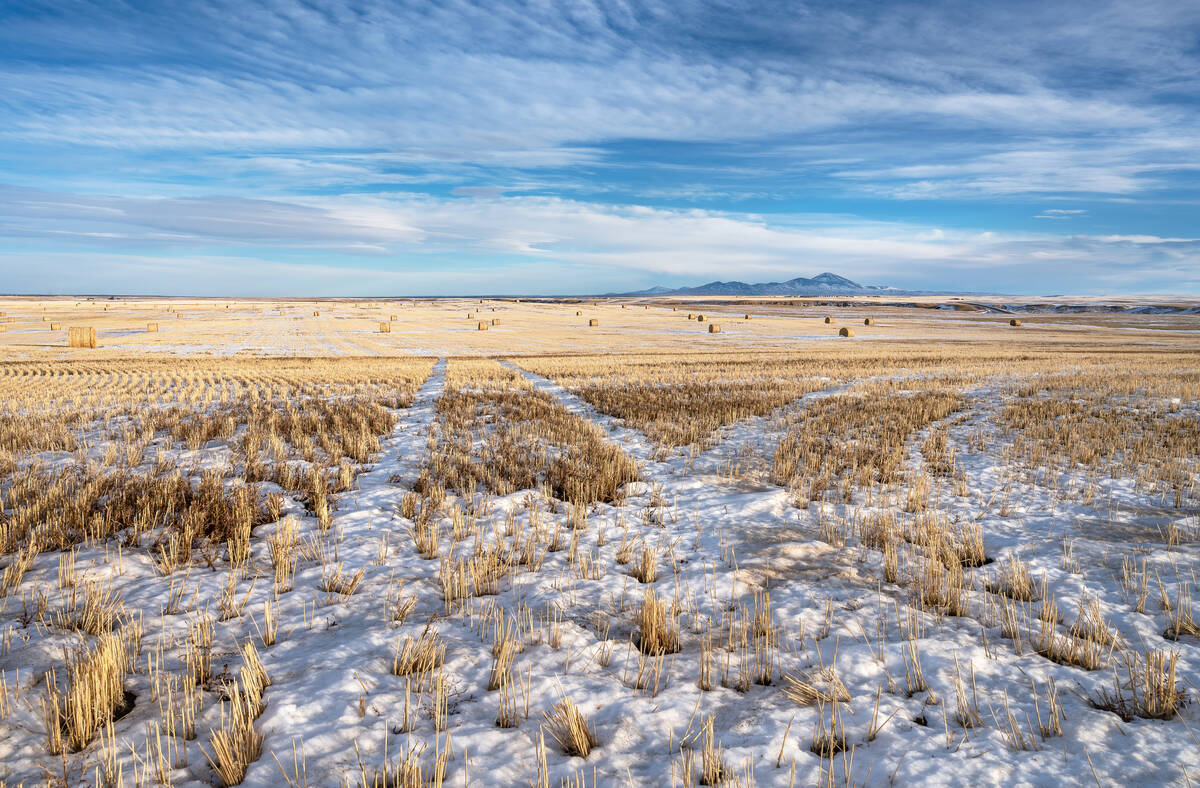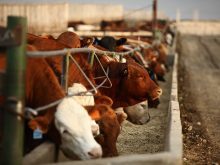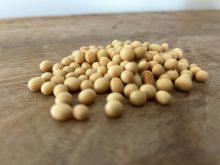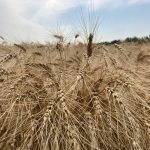Chicago | Reuters — As powerful Hurricane Florence advanced toward the southeastern U.S., farmers in North Carolina rushed to harvest corn and tobacco and stock up on pig rations, while the danger of sustained rain and deadly flooding threatened a state where millions of farm animals are housed.
“The governor said that North Carolina is the bull’s eye of this hurricane,” said Larry Wooten, president of the North Carolina Farm Bureau. “I’ll tell you, agriculture is in the heart of that bull’s eye.”
Read Also

Prairie forecast: Above-average temperatures across Prairies
The Feb. 4 to 11 forecast looks mostly warm across Saskatchewan, Alberta and Manitoba with chances of light precipitation in Manitoba.
Hog producers were also lowering levels of liquid manure in outdoor storage pits in an effort to avoid a repeat of Hurricane Floyd, which overwhelmed hog farms and pits in 1999 contaminating waterways with animal carcasses and waste.
North Carolina is the country’s leading producer of tobacco, second-biggest producer of hogs and a major poultry producer. Its crops include corn, soy and cotton, making agriculture the state’s No. 1 industry, valued at US$87 billion.
The state is also home to the world’s largest hog processing plant, run by WH Group’s Smithfield Foods at Tar Heel, about 30 km south of Fayetteville, slaughtering an estimated 32,000 hogs per day.
Florence, a Category 4 storm with winds of 210 km/h, was expected to make landfall on Friday, bringing heavy, sustained rain and potentially deadly flooding to the U.S. southeast coast. Some one million people have been ordered to evacuate.
Two-thirds of North Carolina’s farm income comes from poultry and livestock, including hogs and dairy cattle, according to Wooten. The state has 8.9 million swine, 12 per cent of the U.S. herd, U.S. Agriculture Department data showed.
In 2017, its farmers raised 830.8 million chickens for meat, nine per cent of the U.S. flock, the data showed.
Wooten said it was unclear how many farm animals were in the storm’s path.
As much as 20 inches of rainfall or more is possible across eastern North Carolina, said Don Keeney, senior agricultural meteorologist for weather forecaster Radiant Solutions.
Neither Smithfield nor Prestage Farms, which raises hogs and turkeys, responded to questions about whether they had emergency plans to relocate livestock in the event of severe flooding.
A Smithfield employee who was not authorized to speak with the media said the Tar Heel plant would likely be closed from Wednesday through Saturday. Andy Curliss, CEO of the North Carolina Pork Council, said the facility would likely shut down Thursday and Friday. The company temporarily shut the plant ahead of Hurricane Matthew in 2016.
Bo Stone, who raises corn and hogs at Rowland, about 60 km southwest of the Tar Heel plant, said he worked into the night to harvest his crop. On Tuesday, rain halted his progress. “We’ve been running as hard as we can go,” he said.
Relocating animals in the storm zone was not an option for many farmers, he said. “Nobody would have the capacity to handle your animals… That’s not really an option.”
Last year, North Carolina farmers raised 32.5 million turkeys, or 13 per cent of the U.S. total, according to USDA data. The North Carolina Poultry Federation said it did not know how many of the birds were in the storm’s path.
More than a million poultry birds died two years ago when floodwaters from Hurricane Matthew covered areas across central and eastern North Carolina. Carcasses were composted inside the houses where the birds were being raised.
Corn around the clock
Tall corn and tobacco crops are most vulnerable to wind damage and difficult to harvest if knocked down, said Rhonda Garrison, executive director of the Corn Growers Association of North Carolina.
“They’re around the clock on corn,” NCPC’s Curliss said.
North Carolina’s corn crop was 43 per cent harvested as of Sunday, while the type of tobacco most commonly grown in the state was 67 per cent harvested, according to USDA data.
North Carolina has waived transportation rules to help farmers move crops and livestock ahead of the most severe storm to threaten the U.S. mainland this year. “During harvest, time is of the essence,” Governor Roy Cooper said in announcing a state of emergency.
British American Tobacco’s Reynolds American, parent of R.J. Reynolds Tobacco, declined to comment on any risk to tobacco crops or plans to keep supplies flowing.
Commodity handler Cargill said it planned to close meat processing plants in West Columbia, South Carolina, and Dayton, Virginia, on Friday.
North Carolina hog farmers have lowered the levels of manure in their lagoons by using it as fertilizer on farmland, said Andrea Ashby, spokeswoman for the state’s department of agriculture and consumer services.
“The levels are in pretty good shape to handle the rain, but it all depends on how much rain we get,” Ashby said.
Most manure pits could handle up to 25 inches of rain, Curliss said.
Smithfield Foods said in a statement it has been lowering waste levels as necessary on its farms and encouraging farmers from whom it buys hogs to do the same.
— Reporting for Reuters by Tom Polansek and P.J. Huffstutter.














